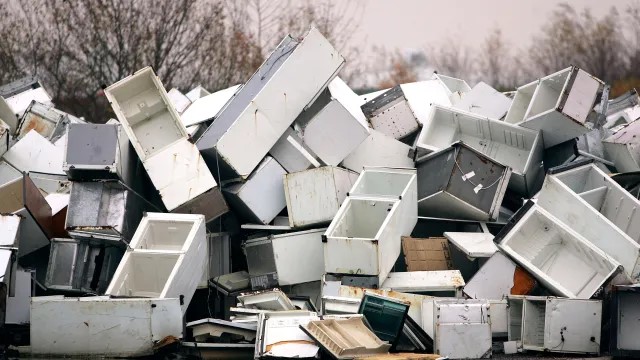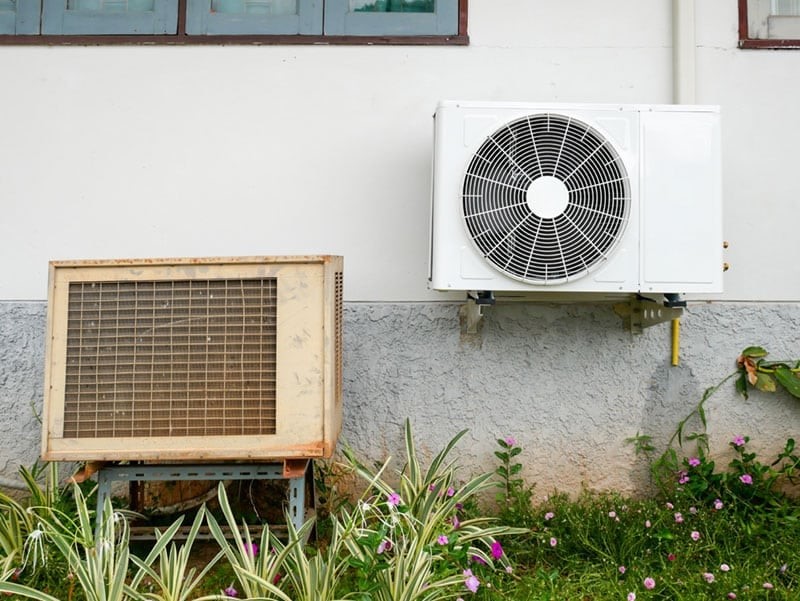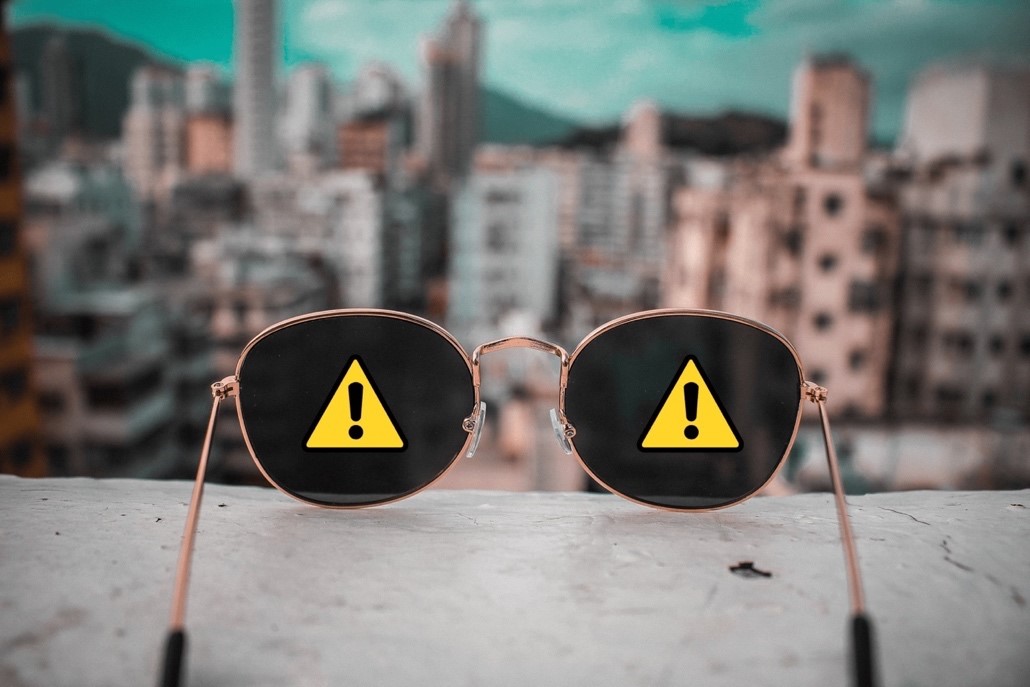
4 things NOT to keep in your home
Let’s admit the truth! Clutter stresses us out. Next time you plan a full-on house cleaning, these 4 things should be on top of your list!
1. Old fridge
 © Alex Livesey/Getty
|
Yes! yes, we all have heard the golden sentence of frugality, “use it until it breaks”. While it makes total sense in many cases, when it comes to old machines with cooling capacities, hmm… not so much!
Look at the 20-year-old fridge you grew up with and ask yourself:
- Is it worth keeping if you have to pay a higher energy bill every month? An old fridge without proper maintenance could consume substantially more energy than newer energy efficient models. After buying a fridge, you will be using it 24/7, so don’t forget to think about its lifetime cost. In other words, your energy bill could be much less if you use newer and more efficient ones, and you will save significantly more in the long run.
- Will it be possible to maintain? It is no secret old equipment without proper maintenance is the major cause of refrigerants leakage, and that contributes to ozone layer depletion and climate change. An international agreement, known as the Montreal Protocol, indeed controls the trade of harmful gases that damage the ozone layer. These gases are also known as ozone-depleting substances. The import of most ozone-depleting substances has been banned by all countries and it is likely that these banned gases are no longer available in the market. For example, if your old fridge relies on CFC-12, whose import is banned since 2010, the technician who repairs your fridge might not be able to find this refrigerant to service your old fridge. It's probably time to talk to an expert refrigeration technician or visit a home appliances shop nearby and look for a new one!
- Is it environmentally sound? Note that old fridges rely on harmful gases that are bad for the environment when released into the air, which eventually will come back to haunt us. Do you still want it in your home?
Benefits: ☑ Save energy costs every month ☑ Easier to maintain ☑ Reliable
How to dispose properly: Check the disposal requirements with your local authorities. Take your old fridge to a designated drop-off location in your area or contact a waste disposal company to do it on your behalf.
Do NOT: ☒ Dump them in landfill ☒ Dismantle them by yourself
2. Old air con

© Appliance Analyst
|
Done with the fridge? Now, it’s time for your old air con, especially for places with hot weather. Similar concept above applies. Newer air con means newer technology. It is designed to use less energy while achieving and maintaining an adequate capacity. In simplest terms, you can put on your air con to keep cool and pay less for energy.
“But my air con works just fine, why should I get rid of it?” Well, there are some long-term benefits for you to consider (at least for the next purchase):
- Money saving. This may sound counterintuitive but in general the newer the air con, the more energy efficient it tends to be. You won’t sweat every time you see the monthly electricity bills. Also, the cost of replacement can be considerably cheaper than one of multiple repairs. Agree?
- Improved health. When there’s heat and rain, bacteria like fungi finds an old air con system “home”. Your old air con may not look harmful, but the airflow could tell a different invisible story. Newer air con is usually designed with improved air-filtering features that could help prevent respiratory health risks.
- Less hassle to maintain. You need obsolete refrigerant gases like R-22 to ensure the cooling capacity of an old air con – to maintain it from time to time. Again, the Montreal Protocol ensures that these gases will soon be out of the global market. On the other hand, newer and more efficient air con use environmentally friendly refrigerants that will still be available in the near future. Which one sounds better?
Benefits: ☑ Save energy costs every month ☑ Easier to maintain ☑ Reliable
How to dispose properly: Check the disposal requirements with your local authorities. Take your old air con to a designated drop-off location in your area or contact a waste disposal company to do it on your behalf.
Do NOT: ☒ Dump them in landfill ☒ Dismantle them by yourself
3. Fake sunglasses

© Armorblox
|
We hear you. Fashion trends for sunglasses come and go pretty fast. So why spend a lot of money when you can get almost-the-same glasses for way cheaper, right?! Well, think again.
Here’s a reason why you shouldn’t keep fake sunglasses - even as an option. When your eyes are exposed to the sun's UV rays, you risk having serious eye conditions such as blurred vision or cataracts. Remember, you only have one pair of eyes! In the past decades, due to the release of Ozone Depleting Substances in the atmosphere, the ozone layer has been thinning and its UV absorption capacity has been reduced. Although according to scientists the ozone layer is now on a recovery trend, it has become harder and harder to take care of the eyes. UV rays can irreversibly damage your eyesight and sunglasses produced by non-reputable brands may not offer enough assurance of protecting the eyes.
UV-filtering sunglasses were therefore invented to protect your eyes from harmful UV light. But if the non-authentic ones do not really offer the UV protection as the certified ones, why keep them? In fact, reputable sunglasses producers have put a lot of effort in making sure that the lenses perform their jobs well.
Speaking of UV, did you know that the UV index can be checked directly on your weather mobile app? Check it out!
Benefits: ☑ Better eyes protection
4. (Some) sunscreen

© Reef Repair
|
Thanks to the ozone hole discovered in the 80s, the real truth about skin cancer was revealed and shook the world. Painful sunburns are one thing, skin cancer like melanoma is not something we can just laugh at. Sunscreen has always been a must-apply ever since.
Don’t get this wrong. Using sunscreen is still highly recommended. It’s just there are some types that should not land on your skin… Pick up sunscreens around your house, look at the ingredients list, and if you see “oxybenzone” and/or “octinoxate”. They are NO-NOs. In fact, they are already banned in some countries.
Why? Because these ingredients truly harm the environment in the way that they damage coral DNA and disrupt marine lives (and consequently ours).
Benefits: ☑ Skin protection ☑ More eco- and ocean-friendly products


